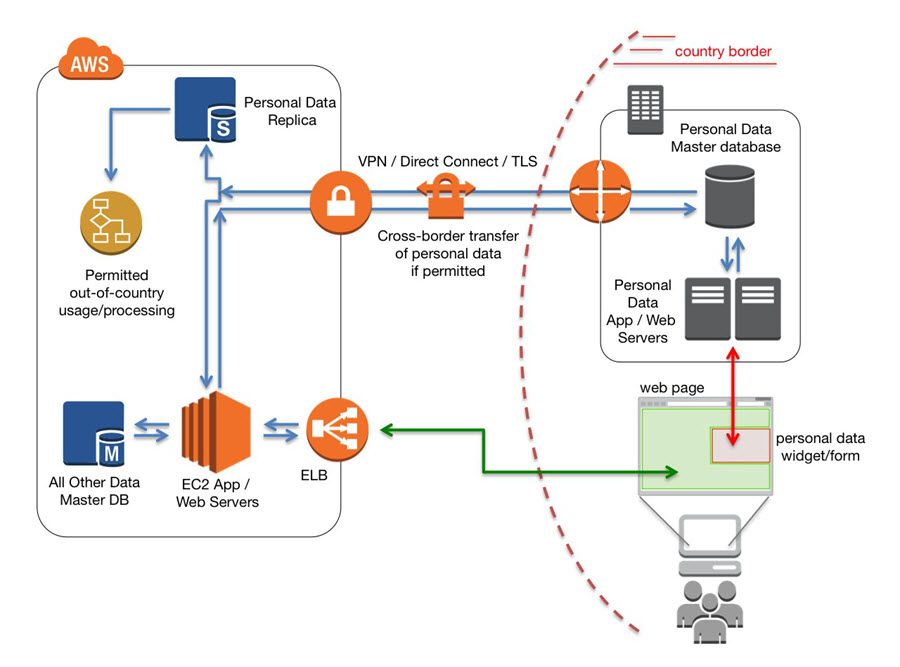AWS News Blog
In-Country Storage of Personal Data
My colleague Denis Batalov works out of the AWS Office in Luxembourg. As a Solutions Architect, he is often asked about the in-country storage requirement that some countries impose on certain types of data. Although this requirement applies to a relatively small number of workloads, I am still happy that he took the time to write the guest post below to share some of his knowledge.
— Jeff;
AWS customers sometimes offer their services in countries where local requirements necessitate storage and processing of certain sensitive data to take place within the applicable country, that is, in a datacenter physically located in the respective country. Examples of such sensitive data include financial transactions and personal data (also referred to in some countries as Personally Identifiable Information, or PII). Depending on the specific storage and processing requirements, one answer might be to utilize hybrid architectures where the component of the system that is responsible for collecting, storing and processing the sensitive data is placed in-country, while the remaining system resides in AWS. More information about hybrid architectures in general can be found on the Hybrid Architectures with AWS page.
The reference architecture diagram included below shows an example of a hypothetical web application hosted on AWS that collects personal data as part of its operation. Since the collection of personal data may be required to occur in-country, the widget or form that is used to collect or display personal data (shown in red) is generated by a web server located in-country, while the rest of the web site (shown in green) is generated by the usual web server located in AWS. This way the authoritative copy of the personal data resides in-country and all updates to the data are also recorded in-country. Note that the data that is not required to be stored in-country can continue to be stored in the main database (or databases) residing in AWS.

This architecture still provides customers with the most important benefits of the cloud: it is flexible, scalable, and cost-effective.
There may be situations where a copy of personal data needs to be transferred across a national border, e.g. in order to fulfill contractual obligations, such as transferring the name, billing address and payment method when a cross-border purchase is transacted. Where permitted by local legislation, a replica of the data (either complete or partial) can be transferred across the border via a secure channel. Data can be securely transferred over public internet with the use of TLS, or using a VPN connection established between the Virtual Private Gateway of the VPC and the Customer Gateway residing in-country. Additionally, customers may establish private connectivity between AWS and an in-country datacenter by using AWS Direct Connect, which in many cases can reduce network costs, increase bandwidth throughput, and provide a more consistent network experience compared to Internet-based connections.
Alternatively, it may be possible to achieve certain processing outcomes in the AWS cloud while employing data anonymization. This is a type of information sanitization whose intent is privacy protection, commonly associated with highly sensitive personal information. It is the process of either encrypting, tokenizing, or removing personally identifiable information from data sets, so that the people whom the data describe remain anonymous in a particular context. Upon return of the processed dataset from the AWS cloud it could be integrated in to in-country databases to give it personal context again.
— Denis
PS – Customers should, of course, seek advice from professionals who are familiar with details of the country-specific legislation to ensure compliance with any applicable local laws, as this example architecture is shown here for illustrative purposes only!